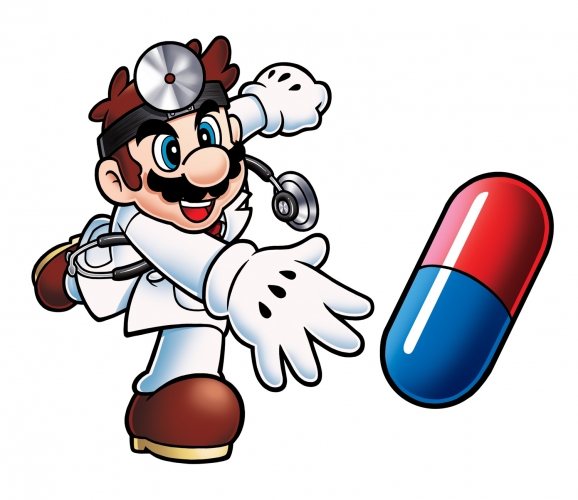Idea to retire: Patients as passive recipients of health care
Managing health care in today’s turbulent economic environment has
become a critical issue for all health care stakeholders. Health care is
facing the challenge of modernizing and at the same time economizing.
The increasing dominance of economic reasoning in health care demands
cost-containment and emphasizes self-responsibility, financial stakes,
and participation of health care users. Under the logic of health care
consumerism, the autonomy of patients has forced medical organizations
to be more customer-focused. At the same time, health care consumers
assume greater responsibility for their own health care and are being
asked to make more decisions—and more complex decisions—than ever before.
Apps that motivate people to live healthier lifestyles are driving the rising demand for health care gamification. The commercial potential for health related services and products are attracting several industry players to invest in gamified apps. For example, gamification can be effectively used in the delivery of health and wellness programs in organizations, including corporations, educational institutions, and public sector organizations. Some examples that help you keep track of your daily activities come from companies like
Apps that motivate people to live healthier lifestyles are driving the rising demand for health care gamification. The commercial potential for health related services and products are attracting several industry players to invest in gamified apps. For example, gamification can be effectively used in the delivery of health and wellness programs in organizations, including corporations, educational institutions, and public sector organizations. Some examples that help you keep track of your daily activities come from companies like
- Striiv,
- FitBit, and
- Nike, with Nike+ and the Nike+ FuelBand .
One of the trends sweeping the healthcare app world is gamification, using game-thinking and game-mechanics to change behavior.
The basic idea is to reward players for accomplishing desired tasks. It may also take advantage of natural competitive tendencies, pitting players against each other or a standard metric.
“Gamification is fundamentally a tool for motivation. In healthcare, it’s primarily useful for behavior change – helping people commit to and stick with activities they know they want to do,” professor Kevin Werbach told HealthBiz Decoded.
“That could be exercising more, taking your medication regularly, or, in the case of the app SuperBetter, taking a series of steps associated with better recovery from serious illnesses,” said Werbach, author of For the Win: How Game Thinking Can Revolutionize Your Business.
Top Ten Gamified Healthcare Games that will extend your Life
In the spirit of helping to make the world a better place, healthcare games are growing to meet real needs. And with the help of gamification, it is now possible to experience fun and joy in developing a healthy lifestyle, while preventing diseases and disorders before its too late.
The basic idea is to reward players for accomplishing desired tasks. It may also take advantage of natural competitive tendencies, pitting players against each other or a standard metric.
“Gamification is fundamentally a tool for motivation. In healthcare, it’s primarily useful for behavior change – helping people commit to and stick with activities they know they want to do,” professor Kevin Werbach told HealthBiz Decoded.
“That could be exercising more, taking your medication regularly, or, in the case of the app SuperBetter, taking a series of steps associated with better recovery from serious illnesses,” said Werbach, author of For the Win: How Game Thinking Can Revolutionize Your Business.
Top Ten Gamified Healthcare Games that will extend your Life
In the spirit of helping to make the world a better place, healthcare games are growing to meet real needs. And with the help of gamification, it is now possible to experience fun and joy in developing a healthy lifestyle, while preventing diseases and disorders before its too late.
- Ayogo has designed an app called Empower to help patients develop new behavioral habits specific to their condition.
- Mango Health has designed an app which patients can actually earn monetary rewards simply for taking their medication.
- Reflexion Health aims to “reimagine the physical therapy experience.”
- Respond Well’s technology is also aimed at helping physical therapy patients consistently perform their rehab exercise routines.
- thanks to Cohero Health, there is now an app called Asthma Hero to help young patients stay on schedule.
- Pact is an app funded by the founder of Guitar Hero. Users literally make pacts with themselves to consistently exercise and eat healthy. And they can get paid real dollars to do so.
- HubBub’s tagline is “Play Well Together.” It is designed to help companies improve the health of their employees and overall productivity.
- Cog Cubed develops applications which target a wide range of cognitive processes.
- Akili has designed an assessment game called Evo mainly targeted for the purpose of detecting Alzheimer’s disease.
- Synandus offers “simulation learning technology” for patients and students. Currently, one of their applications is for patients with COPD (Chronic Obstructive Pulmonary Disease), a progressive disorder where breathing becomes increasingly difficult.


No comments:
Post a Comment